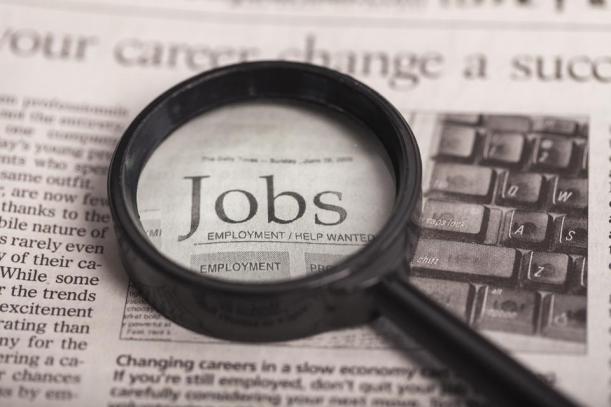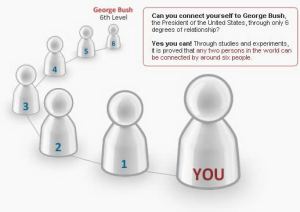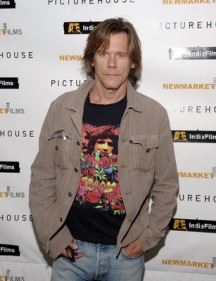 The economy was a little shaky at the turn of the year, with many traditional retailers hardly setting the world alight. Sadly the global pandemic accelerated a few casualties and highlighted issues in the business models of others. As a result, there seems to be an unprecedented number of people looking for work, even those at a senior level that business previously turned to, in order to help navigate their way through various crisis.
The economy was a little shaky at the turn of the year, with many traditional retailers hardly setting the world alight. Sadly the global pandemic accelerated a few casualties and highlighted issues in the business models of others. As a result, there seems to be an unprecedented number of people looking for work, even those at a senior level that business previously turned to, in order to help navigate their way through various crisis.
Sadly, even businesses that haven’t fallen have removed amazingly talented people from senior marketing roles, taking a short-term view over medium and long-term. I set-up a WhatsApp group to help Senior Marketing professionals, either in this position or open to helping others. As a result, I am posting this article in the hope it can offer, help, hope and above all do some good for anybody searching for a role.
I won’t break it down to a top tips but I will break it in to sections. Each person that has contributed will be referenced and I will link to their profiles. After all if you like their wisdom or input, why not connect?
The sections I will break this in to are:
The hunt
The application
How to get noticed
The interview
Tackling bad news
Celebrating success
The hunt
Remember job hunting is not one way. If you have reached a senior marketing position, there is a good chance you have achieved over your career and delivered results. Very few people get so lucky that they reach the top. Sometimes it can feel helpless. Sometimes the panic sets in and you want to be seen by as many people as possible and the temptation is there to up frequency and forget about quality. Don’t.
As Chris McPartlin says “be choosy”. Chris highlights potential issues with your CV being on every platform, particularly the content aggregators. “Don’t take the shotgun approach when releasing your CV over the net. Retain some control”
“Remember, you’re C-level or a director. The more your CV pops up and the longer its available on the web, you will be perceived as an actively searching person. You will get noticed by the wrong people. Questions may also be raised, as your CV would have been out there for a long time”
Probably the most important thing to consider at the start of the hunt is what do you definitely want from your next role. What don’t you want. What are your compromise areas? Sometimes money is not the most important thing. You might need a better work/life balance, you may need a challenge or you may want to work in a sector that you are passionate about. Just be clear, this is really important for yourself, but also for any would-be recruiter.
As Rachael Pettit adds “Speak with your contacts and let them know you’re looking, it’s surprising how many senior roles are not posted on traditional job sites, rather word of mouth recommendations. I’ve also found that talking to contacts, be it founders, ex-colleagues, mentors has really helped to sharpen what is the right opportunity for me”
Andy Turba believes organisation is paramount “Create a daily schedule. Juggling randomly between job search, talking to connections on LinkedIn or answering emails will eventually go against you and your productivity will go down. Try to write down your schedule the night before. This will leave you with time to concentrate on specific tasks. Making you more efficient and stop your mind wandering from place to place or task to task”
So the message is clear, take control of the process and make it a job in its own right.
The application
Where applicable, the application can be one of the most significant stages. It could be what separates you from shortlist to scrap paper bin. When applying for a role and written content is requested, make sure you understand the role, you understand the spec and you understand how your experience fits. All sounds obvious, but recruiters have to sift through tons of applicants. Look at LinkedIn jobs at the moment. Jobs get posted and within a couple of hours, hundreds of applications.
Nicola Vidal expands on this with the following 5 step approach
1 Read the spec thoroughly and highlight the skills you match
2 Take your time. Prepare a draft letter. But genuinely tailor it. Better to apply with 5 well crafted applications than 10 rushed ones
3 Use a friendly tone. Be professional but sell yourself. Buzz words are needed if they are relevant
4 Be concise and relevant.The application should cover off what is required. No literary prizes will be won
5 Speak their language. Tailor the application specifically to the job spec
How to Get Noticed
As most senior professionals will tell you, the power of your network is really important. This is not only true when you are looking for a role but also when you have landed one. Network with people but in the right way. Simply being a LinkedIn connection isn’t networking. Interact and offer some value to your network, otherwise, what is their motivation for helping somebody that is simply a LinkedIn connection, especially if they could be competitive and in a similar role.
Roger Binks was made redundant at the start of the pandemic and highlights some of the things he has done to get noticed on his LinkedIn profile
“authoring posts to demonstrate my back ground but [importantly] with an edge and writing short papers/articles [for the same reason]. I have taken care to research the right subject, hash tags and people to add to the posts – all designed to maximise reach and audience quality. ”
When I speak to anybody that has successfully found a role or is actively looking, the same advice comes up. Networking is key. Make sure are seen and are either known or become associated with the right things. Be an active member of people’s networks without becoming overly intrusive.
The Interview
Interviews can be tricky at the best of times. With the current restrictions on ‘normal’ working practices, physically meeting for interviews is nigh on impossible. Video calls can often be difficult to judge. Sometimes peoples reactions are difficult to read. Not getting the signals when somebody is about to talk can cause awkward silences or even moments of overtalking. Add to the fact that technology is not always our friend, so speed and connectivity can cause concerns. But everybody is aware of this. We can all make allowances. My best advice for interviews from a personal perspective is based on two factors. Be yourself. If the people interviewing you don’t like your personality or there is no rapport, chances are you won’t fit in anyway. Second, always listen. This is important in normal circumstances but even more so on video calls. Read signs when they are there and empathise with what is being said (if you feel empathy). Remember, you are being interviewed and were probably selected due to your experience or background. There is an interest in you and you have something that the business could use. Otherwise you wouldn’t be there.
The awkward questions
Regular ones include what do you think about our brand? How could we improve our site? What would you change about our marketing? You do need to know answers to these and you need an understanding of the company. Equally you can’t know everything about them and thats fine. But when tackling these questions, be honest, you need to answer with what you would do. Again, you won’t succeed in the role once you land it if you have to adapt your ideology massively.
Chris McPartlin cements this view “… be yourself. Senior level professionals should demonstrate confidence and self-esteem. You know what you’re talking about and most likely have over a decade of experience under your belt. Act accordingly. It doesn’t mean being disrespectful or acting arrogantly. Show confidence. Show conviction.”
In my opinion you also need to show something above the the technical aspects. Show you can be a leader.
Tackling Bad News
Possibly the most difficult part of a recruitment process. When somebody gives you the bad news that you haven’t been successful, particularly if you have massively invested in a process or its a dream job. This hurts, you wouldn’t be human if it didn’t
From my personal perspective, remember this isn’t personal. Most people in senior marketing roles will have had experience of turning down candidates that have been good. It should never be personal.
Always push the person giving you the bad news for a constructive set of feedback. Just saying, “sorry you were great but the other person had more experience” or “we just decided to go with an internal candidate” doesn’t help you. Ask for positives and negatives from the people you spoke to. You can learn from the process and often learn more from being declined than the one you land.
Celebrating Success
Whilst the obvious time to celebrate success is when you land that role, remember to do it in the right way. Your network should and probably will wish you luck, but many are out of work at the moment, through no fault of their own. Do it humbly and offer support and encouragement to others in your network.
It is also important to celebrate those small wins along the way. Getting shortlisted. Really smashing that interview. Creating something that genuinely helps you and others.
Please remember that it is important to celebrate success. Landing that job is great, but thats just the start. Make sure you land well. Have a plan and make sure the role is a success.
The End
I do hope some of you found this useful and can apply some of the logic to your own search. We have tried not to include the obvious like be happy or keep your chin up. These are givens.
I would love to know what you think, so please let me know in the comments or by dropping me a line of my LinkedIn. One thing I have learned, is that it is very rewarding to help others and support them.
Contributors
Please also take the time to look at the people that added comments and experience to this post


 Six Degrees of Separation
Six Degrees of Separation  Taking this into consideration, I am connected to anybody who reads this blog within a maximum of six degrees of separation. Taking it to the extreme, I am linked to anybody in the world within six degrees of separation, whether that is former Countdown presenter
Taking this into consideration, I am connected to anybody who reads this blog within a maximum of six degrees of separation. Taking it to the extreme, I am linked to anybody in the world within six degrees of separation, whether that is former Countdown presenter